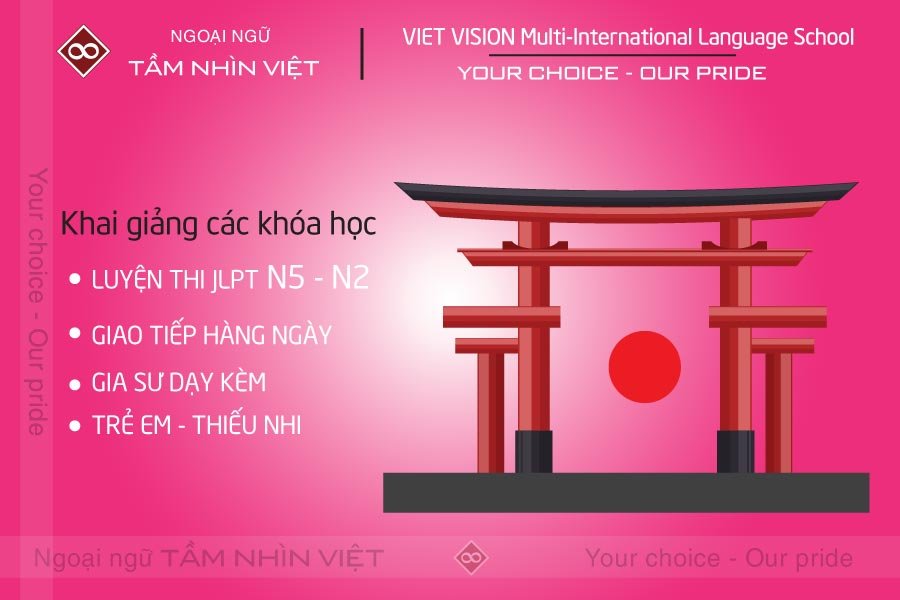Các bạn học ngữ pháp JLPT N3 tiếng Nhật sẽ cần hệ thống đầy đủ và chuyên sâu kiến thức trước kỳ thi để đạt điểm cao.
Hôm nay, chúng ta sẽ đi đến Bài 121 – Ngữ pháp JLPT N3 – っぽい (ppoi)
Trong bài sẽ có nhiều câu ví dụ cho phần ngữ pháp để bạn có thể hiểu rõ hơn và dễ dàng tiếp thu hơn. Tuy nhiên, một điều lưu ý là bài học được thiết kế dành cho các bạn có nền tảng kiến thức tiếng Anh tốt. Nếu bạn nào không tự tin, có thể sử dụng ứng dụng Google Translate để dịch thành tiếng Việt nhé!
- Có thể bạn quan tâm: Khóa học tiếng Nhật theo yêu cầu (dạy kèm tại nhà hoặc trung tâm)

1. Giải thích ngữ pháp JLPT N3 – っぽい (ppoi)
Meaning : ish, like
Formation:
Verb-stem + っぽい
Noun + っぽい
いadj (-い) + っぽい
なadj + っぽい
2. Các câu ví dụ thông dụng nhất
姉はいつも子供っぽい服を着ている。
My elder sister always wear childish clothes.
Ane wa itsumo kodomoppoi fuku o kiteiru.
彼はいたずらっぽい目つきをした。
He gave a roguish expression.
Kare wa itazurappoi metsuki o shita.
あの小学生は、大人っぽい。
That elementary school student acts very adult-like.
Ano shougakusei wa, otonappoi.
たけしくんは飽きっぽくて何をやってもすぐやめてしまう。
Takeshi is fickle. he always quits easily.
Takeshikun wa akippokute nani o yattemo sugu yamete shimau.
この料理は油っぽくていやだ。
I don’t like this dish. it’s too greasy.
Kono ryouri wa aburappokute iya da.
わたしは、自分でもおどろくほど忘れっぽいです。
Even i am shocked by how forgetful i am.
Watashi wa, jibun demo odoroku hodo wasureppoi desu.
太郎の灰色の目にいつものいたずらっぽい光がきらめいた。
Taro’s gray eyes flashed a familiar mischief.
Tarou no haiiro no me ni itsumo no itazurappoi hikari ga kirameita.
わたしはおこりっぽいですけれど、根にもったりはしません。
I am passionate, but not vindictive.
Watashi wa okorippoi desu keredo, ne ni mottari wa shimasen.
私はとても飽きっぽい人間なのです。本当にそうなんです。
I have a very low boredom threshold. i really do.
Watashi wa totemo akippoi ningen na no desu. hontou ni sou nan desu.
全身を黒いレザーに包んだ女だ。引き締まった強靭な体つきで、黒っぽい髪を短く切ってスパイクヘアにしている。
The woman is dressed entirely in black leather. she’s toned and strong with dark, spiked hair.
Zenshin o kuroi rezaa ni tsutsunda onna da. hikishimatta kyoujin na karadatsuki de, kuroppoi kami o mijikaku kitte supaiku hea ni shite iru.
彼女は、テーブルと安っぽい椅子二脚が置かれた質素な簡易キッチンへ、私を連れていった。
She led me into a modest kitchenette whose table had two flimsy chairs.
Kanojo wa, teeburu to yasuppoi isu nikyaku ga okareta shisso na kan’i kicchin e, watashi o tsurete itta.
判断のぬけ落ちている感情は、水っぽい薬のようなものにちがいない。
Feeling without judgment is a washy draught indeed.
Handan no nukeochite iru kanjou wa, mizuppoi kusuri no you na mono ni chigai nai.
ほこりっぽい通りの角を曲がり、明美の家から姿が見えないところまで来ると、春美は手綱を引いて、ハナミズキの茂みの下で馬を止めた。
When he had rounded the curve of the dusty road that hid him from akemi’s house, harumi drew his horse to a stop under a clump of dogwood.
Hokorippoi toori no kado o magari, akemi no ie kara sugata ga mienai tokoro made kuru to, harumi wa tazuna o hiite, hanamizuki no shigemi no shita de uma o tometa.
兄の瞳がいたずらっぽく輝きはしないかと、わたしはじっと見つめた。
I searched my brother’s eyes for a glint of playfulness.
Ani no hitomi ga itazurappoku kagayaki wa shinai ka to, watashi wa jitto mitsumeta.
今夜、わたしの人生の一幕がおわり、あしたは、新しい一幕がはじまろうとしている。わたしは熱っぽいまなざしで、その劇的な変化を見守らねばならないのだ。
A phase of my life is closing to-night, a new one opening tomorrow. i must watch feverishly while the change is being accomplished.
Kon’ya, watashi no jinsei no hitomaku ga owari, ashita wa, atarashi hitomaku ga hajimarou to shite iru. watashi wa netsuppoi manazashi de, sono gekiteki na henka o mimamoraneba naranai no da.
冬枯れの野原に目をやったが、草をはむ羊の姿もなく、みじかい草は寒気にやられて白っぽくなっている。
I looked into an empty field where no sheep were feeding, where the short grass was nipped and blanched.
Fuyugare no nohara ni me o yatta ga, kusa o hamu hitsuji no sugata mo naku, mijikai kusa wa samuke ni yararete shiroppoku natte iru.
めったに使わない部屋は、なにもかも湿っぽくなります。
Everything gets so damp in rooms that are seldom inhabited.
Metta ni tsukawanai heya wa, nanimo kamo shimeppoku narimasu.
明子は艶っぽく微笑み、金髪のポニーテールに指を走らせた。
Akiko smirked coyly as she stroked her blond ponytail.
Akiko wa tsuyappoku hohoemi, kinpatsu no poniiteeru ni yubi o hashiraseta.
Kết thúc bài học
Như vậy, chúng ta đã kết thúc Bài 121 – Ngữ pháp JLPT N3 – っぽい (ppoi)
Hãy tiếp tục theo dõi các bài học ngữ pháp JLTP N3 tiếp theo tại đây: Tổng hợp các bài học ngữ pháp tiếng Nhật JLPT N3
BONUS: Các bạn có thể bổ sung thông tin quan trọng trong kỳ thi JLPT 2020 “TẠI ĐÂY”
Cảm ơn bạn đã quan tâm và theo dõi bài học!
